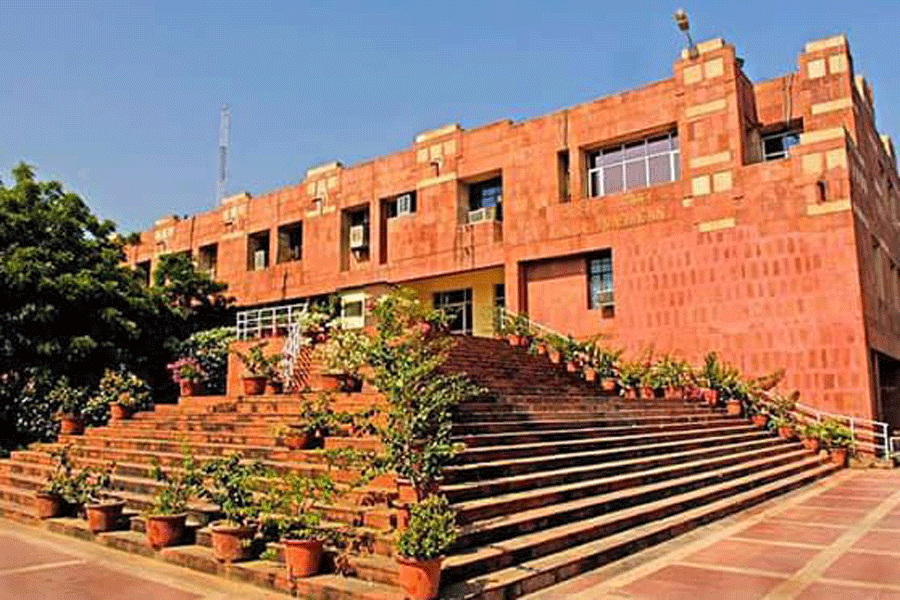Jawaharlal Nehru University had in 2018 and 2019 ignored transparency norms while rejecting two teachers’ applications for promotion, with its executive council reduced to a rubber stamp, Delhi High Court said in two judgments last week.
In a third judgment, it set aside JNU’s decision in 2020 to retrospectively revise the latest salaries paid to a retired faculty member, Shivaprakash, and issue notices to him seeking to recover what it claimed were extra payments made to him. The court said the university could not retrospectively reduce the retired academic’s salary.
M. Jagadesh Kumar, now chairman of higher education regulator UGC, was JNU vice-chancellor when these three controversial decisions were taken.
Purva Yadav and Vinay K. Ambedkar, both assistant professors Grade-I, had applied for promotion to assistant professor Grade II in 2017 and 2018, respectively. Although both fulfilled the eligibility requirements, their applications were rejected on the recommendation of a screening-cum-evaluation committee.
Yadav had in her court petition pleaded that the screening committee had not cited any reason. She said she had the Academic Performance Index score required for promotions under UGC regulations. The university said the screening committee had found the candidate unsuitable for promotion and that the committee’s decision did not come under the court’s purview.
Justice Chandra Dhari Singh set aside JNU’s rejection of Yadav’s application, holding that the failure to cite any reason established the opacity of the process. UGC regulations require universities to be transparent in decision-making. The high court has directed JNU to decide on Yadav’s application afresh.
The executive council is empowered to scrutinise any selection committee's recommendations and take the final decision. However, while the rejection of Yadav’s application was communicated to her on August 3, 2018, the executive council’s approval was taken only on August 23, 2018.
“The aforesaid chain of events clearly suggests that the decision of the screening-cum-evaluation committee was rendered final and no discussion took place with regards to the said decision in the executive council’s meeting, asserting towards the assumption that the council is merely to approve anything without applying its mind,” the high court judgment says.
“It is apparent that the basic purpose of the formation of the executive council is contravened by its members since it failed to adhere to the due process of appointment/ promotion/ decision-making...”
In the other two judgments, Justice Chandra Dhari Singh set aside the university’s 2019 rejection of Ambedkar’s application for promotion — citing the same grounds as
the judgment on Yadav’s petition — and quashed the recovery notices sent to Shivaprakash.











